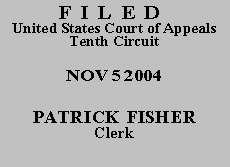

| QUIRINO OLIVAS RODELA;
ANGELA CAMPAGNA RODELA,
Petitioners-Appellants, v. MICHAEL COMFORT, District Director, Immigration and Naturalization Service; JAMES W. ZIGLAR, Commissioner, Immigration and Naturalization Service; JOHN ASHCROFT, Attorney General of the United States, Respondents-Appellees. |
|
Quirino Olivas Rodela and his wife, Angela Campagna Rodela ("Campagna Rodela"), filed a habeas corpus petition after Rodela was removed from the United States. The district court dismissed the petition for lack of jurisdiction. We affirm.
Rodela, a native of Mexico, was denied admission to the United States in 2000, after he presented false evidence of American citizenship.(1) He later attained entry into the United States; when his presence was discovered, however, he was taken into custody and the original order of removal was reinstated.
During his incarceration prior to his removal, Rodela and Campagna Rodelaan American citizenfiled a pleading in the district court captioned "Motion for a Temporary Restraining Order, Declaratory and Injunctive Relief (Stay and Release)." The district court denied a temporary restraining order on the basis that the motion was not supported by an affidavit or verified complaint. The court further noted that "it does not appear that the petitioners have filed any petition, complaint, or similar pleading." R., Doc. 6 at 1.
One week after the court entered this order, Rodela and Campagna Rodela filed a new pleading titled "Petition for Habeas Corpus, Temporary Restraining Order, Declaratory and Injunctive Relief." On the same day this document was filed, the government transported Rodela to Mexico and released him from custody. At a subsequent hearing, the district court dismissed the habeas petition for want of jurisdiction.
On appeal, Rodela and Campagna Rodela contend that it was error to dismiss the habeas petition as moot, as they continue to face collateral consequences arising from the removal order. The basis for the dismissal was not mootness, however; instead, the court found that it lacked jurisdiction at the inception of the litigation because Rodela was not in custody at the time he filed his habeas petition. If Rodela had been in custody at the time he filed his habeas petition, his deportation after the petition was filedand the concomitant release from custodymight not have rendered the petition moot. See Zalawadia v. Ashcroft, 371 F.3d 292, 297-98 (5th Cir. 2004); cf. Spencer v. Kemna, 523 U.S. 1, 7-8 (1998) (discussing "in custody" requirement and mootness doctrine in context of criminal defendant who was released from incarceration after habeas petition was filed). So far as the record reveals, however, Rodela was discharged from custody before his petition reached the courthouse. Because Rodela was not in custody at the moment his habeas petition was filed, the district court properly dismissed the petition for lack of jurisdiction. See Dry v. CFR Court of Indian Offenses, 168 F.3d 1207, 1208 (10th Cir. 1999).
For the foregoing reasons, the judgment of the district court is AFFIRMED.(2)
Entered for the Court
Circuit Judge
*. This order and judgment is not binding precedent, except under the doctrines of law of the case, res judicata, and collateral estoppel. The court generally disfavors the citation of orders and judgments; nevertheless, an order and judgment may be cited under the terms and conditions of 10th Cir. R. 36.3.
1. Rodela alleges that he originally entered the United States in 1992. The record does not indicate when he returned to Mexico prior to being stopped at the border in 2000.
2. The government has suggested that we treat Rodela's habeas petition and notice of appeal as a petition for review of the reinstatement order. It is not clear that we would have jurisdiction to review that order, as Rodela declined to exercise his right to contest the restatement order, see 8 C.F.R. § 241.8(b); arguably, therefore, he failed to exhaust administrative remedies, compare Castro-Cortez v. INS, 239 F.3d 1037, 1045 (9th Cir. 2001) (stating that the right to contest reinstatement order is, at most, a discretionary form of review that need not be exhausted; relying on analogy to motions to reopen Board of Immigration Board of Appeal proceedings) with Akinwunmi v. INS, 194 F.3d 1340, 1341 (10th Cir. 1999) (per curiam) (requiring motion to reopen Board of Immigration Appeals proceedings as necessary stage of exhaustion). We need not resolve this question, however; instead, in the exercise of our discretion, we decline to treat Rodela's habeas petition and notice of appeal as a petition for review.